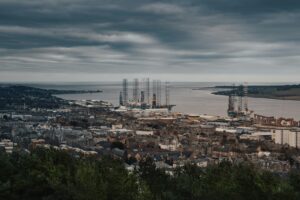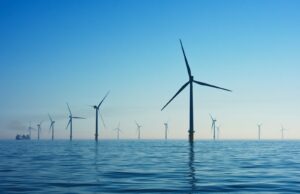Major banks and financial institutions have been accused of trying to hide massive investments into the fossil fuel industry, but there are some companies bucking the trend and proving that banks can be both ethical and transparent. Environment Journal finds out more.
We are constantly being told about the different behavioural changes we can make to reduce our environmental impact, from eating less meat to turning off the lights, and while these are valid and important, it can sometimes feel like the wrong people are being targetted.
We live in a society where governments can appear powerful than corporations and while there is a huge pressure on consumers to be the perfect environmentalists, there does not seem to be enough pressure of the organisations and businesses who have been accused of actively funding climate change.
A sustainable banking system
In March 2019, BankTrack, a non-government organisation, released a report revealing that 33 global banks, including Barclays, HSBC and JP Morgan, have financed the fossil fuel industry with $1.9 trillion since the Paris Climate Agreement in 2015.
Until recently this information was not readily available to the public. Claire Hamlett, a climate campaigner at BankTrack told Environment Journal that finding this information was a very lengthy process.
‘It was a collaborative effort between various organisations to search through different databases and find out which banks have been financing fossil fuels and by how much,’ she said.
The UN has started to respond to this issue with the UN Principles of Responsible Banking (PRB), which has currently been signed by 130 banks. The PRB requires that banks are transparent and clear about how their products and services create value for customers. It’s hoped that the principle will provide a framework for a sustainable banking system by requiring the industry to demonstrate how it makes a positive contribution to society.
However, for now, these principles are limited to banks, with many large corporations and businesses continuing to make money regardless of the environmental consequences.
We got in touch with the accounting giant, KPMG, who provides economic advice to thousands of companies and corporations and who are self-proclaimed as being ‘at the forefront of the oil and gas industry.’
Troy Mortimer, head of sustainability and responsible investment at KPMG, told Environment Journal that there are ‘two schools of thought’ regarding investing in fossil fuels.
‘One is that we should completely divest, and the other, more realistic approach is that we need to invest in the transition,’ he said.
‘We need regulation to create a more level playing field, the investors can’t just reward who has the best story rather than who has the complete picture.’
So by the looks of it, until there are rules in place forcing all corporations to be transparent with who they work with, how they spend their money and where they place their investments, companies like KPMG will continue to act like business as usual, because at the moment, what goes on behind closed doors remains firmly none of our business.
Campaigning for transparency
Richard Murphy, chartered accountant and director of the New Corporate Accountability Network (CAN) is working hard to campaign for transparency. He is demanding that every company, no matter how big or small, puts its accounts in full, on the public record. According to CAN, 90% of UK companies do not provide accounting information that any of their employees can access.
Mr Murphy said: ‘This isn’t picking on anyone; this is picking on everyone. There isn’t a single business that isn’t going to have to change in some way.’
Triodos is one bank that is paving the way for transparency. They are an ethical and sustainable bank and they believe that when you entrust someone with your money, you should know exactly what is being done with it and exactly where it is going.
Triodos launched as a bank in the Netherlands in 1980 and it currently has over 700,000 customers.
Over 5,700 businesses are financed by Triodos Bank, creating an impact in 66 countries worldwide where £6.5bn has been lent to projects across that actively benefit both people and the planet.
Their mission is to create a society that protects and promotes quality of life and human dignity and they do their part by committing to only financing companies that focus on doing good for people, the environment and culture.
Zoe Sear, head of communications at Triodos said: ‘I think all of us, as members of society have a responsibility and a right to understand the impact of our behaviours and actions. We all need to take responsibility for the impact that our money can have, with or without our knowledge.’
‘Money is the most basic form of democracy because where we chose to spend our money reflects our values and beliefs, therefore it is important to take responsibility and ownership of the impact of our money, but we can only do this when we know the whole truth and the full extent of where our money is really going.’
Photo Credit – Pixabay
















